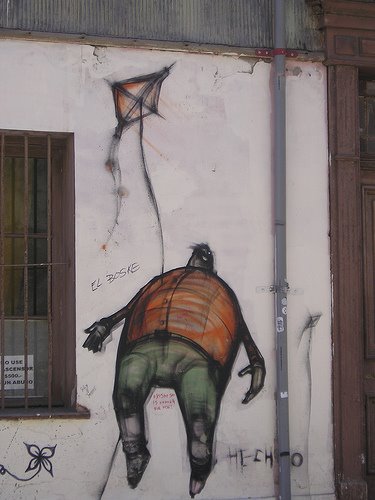The slow food and slow biking movements offer possible models. By turning away from innovations that increase the speed of production, poets could rediscover valuable skills from older methods.That sounds fun. Unfortunately, it's a sort of ambiguous (it seems to me) kind of "manifesto" or at least a "call" to me. I see it saying that rediscovering older methods can be useful, but to what extent? Are we talking about formal poetry? Isn't that the New Formalist movement of the 80s, 90s and today (thanks 96.5, you have ingrained your slogan into my mind...)? Well, according to them, it's pace:
Pace in this slow poetry sense becomes a greater concern. Value could be placed on the withholding of vital details and the slow release of vivid particulars within rhetorical situations driven by a desire to disclose new knowledge.But I find that strange, ya know? Is pace an older method? Here, I thought pace was something already done, something ingrained (to use the word again) in our own choice of editing as well as writing poetry: one places pace within the line and outside of the line as well (the amount of white space wanted, spaces in between words, and even the line breaks themselves -- whether they call for an end-stop or to continue on into the next line, plowing through it with only that slight breath that the eye takes and not even the heart). What I do like about this is how it proposes treating the poem: as something that does not develop immediately, and has a bit of a prosey, discursive kind of feel.
When I think about it, it's trying to make a poem a Hemingway short story. It's those vivid particulars that make you figure out the driving force behind the poem.
SP contributes to systems disruptions by generating an open source platform for self-reflection in contexts where such meditations are more frequently discouraged.Here, its political edge is shining through. The impetus here was something going on in Nigeria. I'm not in on the news since I've been out of it for a while (both literally and figuratively), so I don't know what happened in Nigeria. Basically, there's a globalization process that he's trying to include within this poetic appeal; it's where we can reflect personally on political objects, or situations like "living locally," as the blogger puts it.
I suspect we've already done a lot of these things. But I like where it's going, a lot. I might think about it for a little while, I wonder what you can do with poetry as a slow-cooker. Or developing a poem like a slow cooker. Makes me think of tsimmes and chullent, both slow cookin' Eastern European Jewish delights. Yum.
andrew




